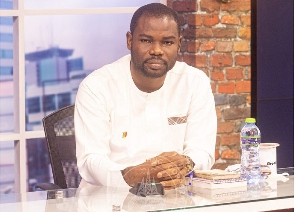 A chartered economist, Bernard Oduro Takyi
A chartered economist, Bernard Oduro Takyi
A chartered economist, Bernard Oduro Takyi, has bemoaned the move by the government to remove the daily limits to electronic money transfers that will attract the Electronic Transfer Levy (E-Levy).
In a GTV interview monitored by the GhanaWeb, Oduro Takyi said that the U-turn by the government will only end up making ordinary Ghanaians poorer.
“E-Levy is a regressive tax because the poor are taxed more but the rich get to benefit. If you go to my village, a lot of the people who do momo (mobile money) are the poor.
“Meanwhile, when E-Levy was being introduced, Ghanaians were made to believe that any amount between GH¢1 to GH¢100 will be exempted. In the 2023 budget, there is no exemption for momo transfers, so any amount that anybody sends is taxable.
“The negative implication is that you have a lot of poor people who will send between GH¢1 and GH¢100 being taxed. It means that the E-Levy is going to punish people who are extremely poor,” he said.
The chartered economist, therefore, urged the government to rescind its decision to remove the GH¢100 threshold for daily transactions that will attract the E-Levy.
The Minister for Finance, Ken Ofori-Atta, has announced a proposal to review the Electronic Transfer Levy (E-Levy) from its current rate of 1.5 percent to 1.0 percent.
In addition to the reduction of the rate, Ofori-Atta also proposed the removal of limits on transfers that will attract the levy.
“Review the E-Levy Act and more specifically, reduce the headline rate from 1.5% to one percent (1%) of the transaction value as well as the removal of the daily threshold," he said.
Watch the interview below:
Watch the second part of Elvis Afriyie Ankrah's interview on GhanaWeb TV below:
Also watch the nomination for the GhanaWeb Excellence Awards Youth Edition below:
IB/BOG